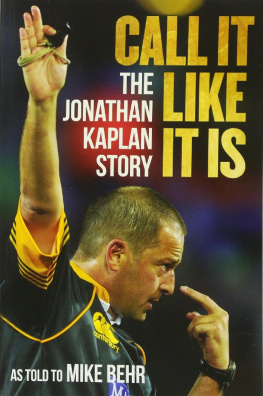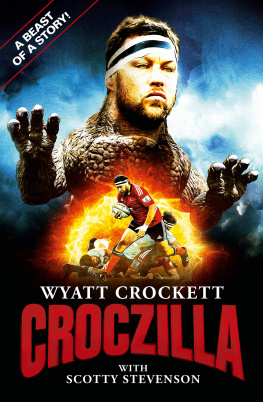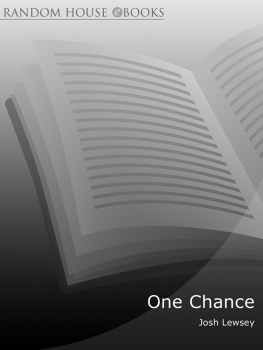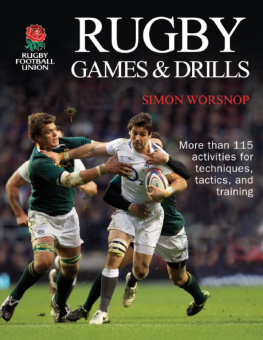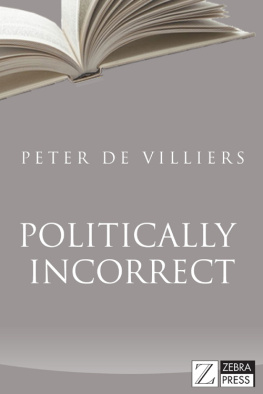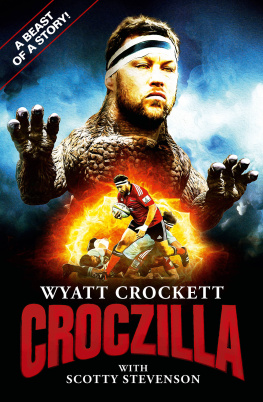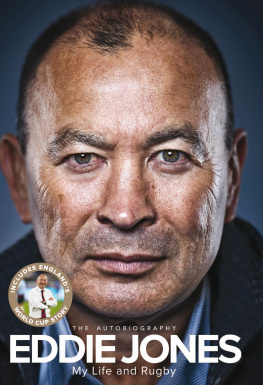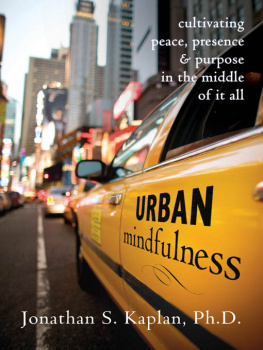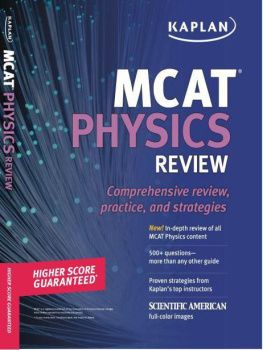Published by Zebra Press an imprint of Random House Struik (Pty) Ltd Company Reg. No. 1966/003153/07 Wembley Square, First Floor, Solan Road, Gardens, Cape Town, 8001 PO Box 1144, Cape Town, 8000, South Africa
Front cover image Gallo Image s / Duif du Toit Back cover images: Jonathan Kaplan Brett Florens; Mike Behr Mike Behr
All rights reserved. No part of this publication may be reproduced, stored in a retrieval system or transmitted, in any form or by any means, electronic, mechanical, photocopying, recording or otherwise, without the prior written permission of the copyright owners.
Every effort has been made to credit the correct person and/or agency for the images used in this book. Where we may have omitted a name or been unable to find the copyright holder, we ask that the relevant party contact us in order for their name to be included in a reprint edition of the book.
Foreword
My first encounter with Jonathan Kaplan came in 1996 when, as a young referee fresh out of school, I was invited to touch-judge at an international schools festival at Kearsney College in Natal. I had heard Jonathan Kaplan was due to referee at the tournament and was excited about meeting the rising star in South African refereeing, a guy who was due to referee a Currie Cup game on TV that weekend. The moment came when Jonathan pulled me aside following the game I had touch-judged and, in what I have since discovered is typical of his style, quite bluntly pointed out areas of my performance that needed improving. I felt he was a little prickly and overly critical.
It did not take me long to realise, however, that far from being deliberately aloof or negative, Jonathan was taking a special interest in me as a person and referee, perhaps recognising something in my 18-year-old self before I had even recognised it myself. It was the start of a very special friendship and work ing relationship.
I watched with growing pride as J.K. went on to become one of the worlds most accomplished referees. Our friendship grew as, perhaps prophetically, I ran touch for him in an enormous amount of rugby games, from Potchef stroom to Auckland and from Stadium Australia to Twickenham. And I loved the countless hours we spent on aeroplanes and in hotels and casinos, and on gentle plods through some of the worlds most glamorous cities, sharing stories and talking about life and rugby.
J.K.s record at all levels of the game attests to his professionalism and his determination to succeed. This didnt happen by accident. J.K. lives the phrase a student of the game. I have been fortunate to witness first-hand to what extent he loves the deep intricacies of the game. The passion and energy with which he dives into detailed analyses and deep philosophical conversations on rugby is a testament to his continued love for the game, which has dominated 30 years of his life.
And whether its a Rugby World Cup semi-final or a Vodacom Cup game in Potchefstroom, its an illuminating insight into the man to have seen first- hand how his approach to and respect of the participants doesnt change. To achieve the accolades and record number of games at all levels attests to his ability to treat each one of them as being as important as the other. The credibility and respect he has garnered over his 15 years in the professional era is a testament to his character.
There is no question that I am a better referee because of the time I spent with J.K. Much of what Ive learnt has been the result of the endless conversations and philosophical debates weve had about the game, but just being around him in a big-match environment, watching him display the courage and the nerve to perform on the worlds greatest rugby stages and under the glare of a sometimes rabid media, permeated my subconscious and provided a road map for the psychological resilience required to succeed at this level.
J.K., you have been my beacon in every respect; I only hope I can be the strong and true warrior that you have been.
CRAIG JOUBERT
Foreword
In 1988, when I was Springbok coach, SANZARs head of refereeing asked me who I and the Bok players thought were the best up-and-coming referees in South Africa at that time. It was an easy choice to make. Jonathan Kaplan, although still a young man, had already established himself as an exceptionally knowledgeable, sympathetic and objective referee, who had a great feel for the game. He showed calmness towards and respect for the players and had a wonderful way of speaking to them. There did not appear to be any ego.
He refereed for the players and for the betterment of game and did not appear to think that he, as the ref, was the focal point of the occasion. That in itself was a rarity! We all agreed that he was the best young ref from South Africa at the time. Amazingly enough, SARU had not put his name forward as one of their best candidates. I believe that, thanks to the Springbok squads recommendation, Jonathan Kaplan was added to SANZARs list of preferred referees and his career was launched.
One of the toughest jobs for any referee is to remain objective in a hostile environment. Statistics have overwhelmingly proven that all refs are influenced by home crowds. Home teams are almost always penalised less than the away team. This is natural and pertains to all refs. It is not bias; it is just that referees are human and humans generally want to be liked.
One of the most courageous refereeing decisions I ever saw was when J.K. penalised the All Blacks in a home game against Australia in 2000 in a breakdown at the very end of the game. He did not hesitate; he was correct, and he blew what he saw. This gave John Eales the chance to step up and kick the penalty that condemned the All Blacks to a home loss.
Normal refereeing, one would think. It was not. As head coach in over 80 international games, I have seen, time and again, refs who avoid blowing that last tough penalty call that could take the win away from the home side. Jonathan, in the toughest of environments, did not hesitate to make the correct call. J.K. has been courageous, accurate and understated a world-class ref eree. He and all rugby-loving South Africans can be very proud of his career.
NICK MALLETT
Foreword
Whenever you discuss a referee, most rugby supporters, players and coaches will have a lot to say, but most of it will probably not be something youd say in front of your kids. Unfortunately, if your team loses or if you need someone to blame for a bad performance, it is always easiest to blame the referee. Because if its the re f s fault, you feel better about yourself and your teams performance.
What people dont understand is that without referees, there wont be rugby. How can we play this game that we all love so much without the man in the middle?

